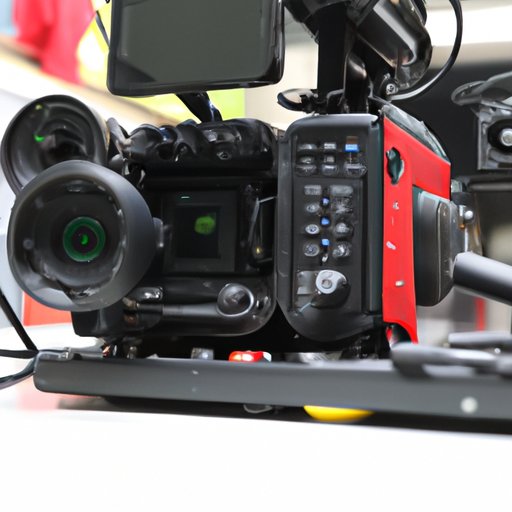Introduction
Videography is an art form that combines the power of visual storytelling with technical skill and knowledge. It requires creativity and a keen eye for detail to capture compelling footage. Becoming a videographer can open up many opportunities, from creating films and documentaries to capturing special events. It’s also a great way to express yourself and make a living.
Research the Basics of Videography
Before you start your journey as a videographer, it’s important to understand the basics. Learn about the different types of cameras and lenses available, what type of audio gear you need, and the basics of lighting. Editing software is also essential for post-production work, so do some research on which programs are best suited for your needs.
Practice Shooting
Once you’ve done your research, it’s time to get out there and start shooting. Start with short clips or scenes, and experiment with different angles and shots. You’ll learn a lot from trial and error, so don’t be afraid to try something new. As you become more comfortable with the equipment, you can move on to larger projects.
Develop Your Style
Every videographer has a unique style, and the key to success is to identify yours. Think about your vision and interests, and look to other professionals in the field for inspiration. Once you’ve established your direction, continue refining your style until you have a portfolio of work that reflects who you are as a videographer.
Network
Networking is essential for any creative field, and videography is no exception. Connect with other videographers and attend industry events and conferences to stay up-to-date on the latest trends and technologies. This will help you gain valuable insight into the profession and make connections that could lead to future collaborations.
Invest in Quality Equipment
Having quality equipment is essential for any videographer. Invest in high-quality cameras, lenses, lighting, and audio gear. If you’re just starting out, consider renting equipment for specific projects instead of buying everything up front. This will help you save money while still producing professional-grade videos.
Start Small
When you’re first starting out, it’s important to take on smaller projects to build experience. Look for freelance gigs or offer your services for free to gain exposure. As you complete projects, create a portfolio of your work to show potential clients what you’re capable of.
Stay Up to Date
Technology is constantly evolving, so it’s important to stay up to date on the latest developments in the field. Read industry news and watch tutorials to learn about new techniques and trends. This will help you stay ahead of the curve and stay competitive in the ever-changing world of videography.
Conclusion
Becoming a successful videographer takes time and dedication. With the right combination of knowledge, practice, and passion, you can create stunning visuals that tell an engaging story. Follow these steps and you’ll be well on your way to becoming a master of the craft.
(Note: Is this article not meeting your expectations? Do you have knowledge or insights to share? Unlock new opportunities and expand your reach by joining our authors team. Click Registration to join us and share your expertise with our readers.)
